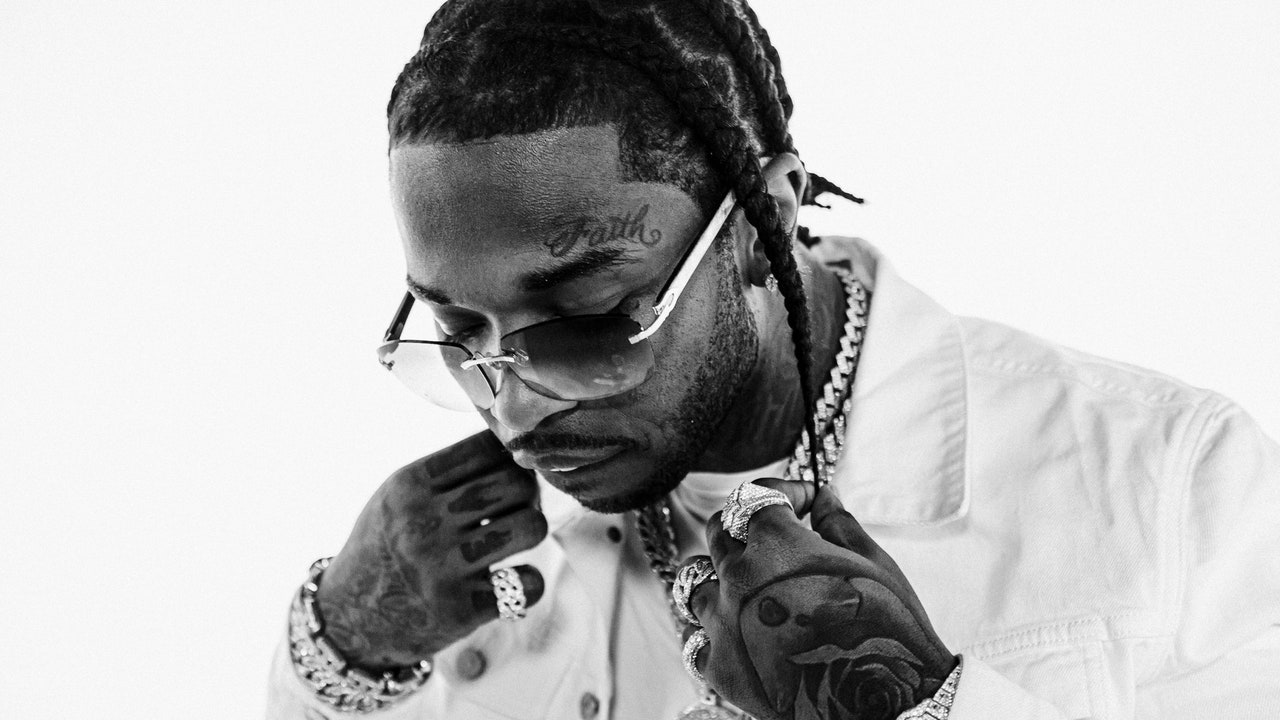
Pop Smoke’s Majesty and Menace
 29
29  30
30 There was nothing about Pop Smoke that suggested fragility. The rapper, from Brooklyn’s Canarsie neighborhood, was at once larger than life—luxury cars, high fashion, glitzy jewelry—and too cool for any of it. His music was all bravado and swagger, topped off by a preternatural charm that could draw in even the most resistant. He seemed, as he proclaims on the opening track of his latest mixtape, invincible. Until he wasn’t. In the early-morning hours of Wednesday, he was gunned down in Los Angeles, at the age of twenty.
Although we’ve found ourselves in this place too much lately—trying to make sense of a life ended barely into its twenties—this moment still arrives like a gut punch. Hip-hop’s youngest fans are learning what it means to lose the artists whom they love, far too early—how their idols are just flesh and bone, colliding with the best and worst of luck. Pop had an entire city rooting for him. His bass-baritone voice, somewhere between a growl and snarl, was a showstopper that could make shit talk sound like seduction; his songs became the soundtrack of New York’s streets and parks. He wasn’t a product of label dollars and marketing but a homegrown hero whose legend travelled the old-school way: word of mouth. Perhaps you caught it, too, blaring from somebody’s car windows, pouring through portable speakers on the train, or from a sidewalk conversation, as the answer to questions, “What are you listening to?†and “Have you heard . . . †Pop was proof of the power of truly organic fandom, at a time when one can never be too sure.
Brooklyn drill, a style of the Chicago-born subgenre drill, took the dark nihilism of the original and the grimy production of London’s iteration and put a decidedly New York, rotten-apple spin on it, helping to rejuvenate hip-hop in the city. Pop, though not the sound’s originator, was its most visible proponent. His earliest releases—the brooding “MPR†and the even more ominous “Flexin’ †(both responses to other drill rappers)—endeared him to local listeners, who could hear themselves in his malignant pleasures. But the undeniable hit “Welcome to the Party†made him a phenom. As the song grew in popularity, Brooklyn drill established itself as a sound that the area could rally behind, and Pop as a rapper it could champion.
This week, about a year after uploading those first songs, Pop landed his first Top Ten on the Billboard 200, with his second mixtape, “Meet the Woo 2.†The sophomore collection reflected an artist settling into his element, more polished but still raw. This past Sunday, Pop was scheduled to headline a show at Brooklyn’s Kings Theatre that would have shined a spotlight on this prodigious new chapter of the borough’s storied hip-hop history, but he was, once again, prohibited by the N.Y.P.D. from taking his victory lap, a decision that feels supremely unjust today. Despite the small miracle of his ascent, now cemented forever in the charts, it’s hard to not think of the potential that’s gone, the début album that was still to come, the upcoming sold-out shows and festival appearances—dates that once held the possibilities of his magic. It’s hard to shake the feeling that there was still so much more that Pop was going to do. We knew what he had overcome to get here, but what could he have done now that he’d arrived?
Hip-hop may be global, but regionalism is what gives it soul—the intangible minutiae in a rapper’s choice of words, flow, or demeanor that are recognizable only to those who have been where he’s been, felt what he’s felt, survived where he survived. He was Canarsie through and through, a quality that he proudly let seep into his music, and in doing so won respect in a place where it isn’t easily given. As the genre and its community grieve yet another tragic and untimely loss, it burns especially in his home town, which was so much a part of his story and what made his music captivating. If you were here for the summer of Pop Smoke, consider yourself fortunate. With his death, hip-hop loses not only one of its most promising stars but also one of its most incredible voices, equal parts majesty and menace—an instrument that he so beautifully used to bring a Brooklyn story to the world.


